As there are other threads that go deep into the reasoning as to why Macedonians of the 19th and 20th century identified as 'Bulgarians' in some instances, this thread will demonstrate who these "bulgarian" Macedonians considered their ancestors.
1845: Russian Chronicler Victor Grigorovich, who travelled among these "bulgarian" Macedonians, has the following to say -
In all areas I visited, I have not heard other names but the names of Alexander the Great and King Marko. Both are alive in the memory of the people…Still, the memory of Alexander the Great is the more established in the people.
Bulgarian children! In the times before SS Cyril and Methodius, the most known people in the Eastern Empire were Bulgarians: Such as Emperor Justinian.........and Emperor Basil the Macedon was a Bulgarian.......
The Marvatsi have tales and folklore passed down through generations from the distant past, which could fill the gaps in general and local Slavic history, as well as clarify and correct many inaccurate and troubling opinions and arguments among ancient and more recent historians about the people living in the Balkan peninsula, about their forefathers, the ancient Thracians, Macedonians and Illyrians…The folksong a very unusual and significant which come down from a distant past. They also relate a song about Alexander and Bucephalus; about his crusade in Asia and war against Darius and Porus….
The Slavs, and not the Greeks, are the forefathers of the civilisation
With the wish to cast off the Turkish bondage from our fatherland, each and every one of us stands ready to sacrifice whatever is necessary. We have rebelled as champions of freedom. By shedding our blood throughout the fields and forests of Macedonia, we serve as the Macedonian army of Alexander the Great once did. We fight for freedom and our motto is: "Freedom or Death!"
During our childhood my father would telling us many stories about King Marko and about Tsar Alexander – Alexander the Great.
I am Macedonian
direct descendant to Alexander the Great?
Yes
1923: Macedonian writer Krste Misirkov, who had his Macedonian identity often contested and compromised by his Bulgarian peers, and who at times identified as a Bulgarian himself, wrote the following with regard to the ancestors of the Macedonians -
King Mark is the son and pride of Macedonia and one of the three great conquerors who spread the name of their land far beyond its territories: (1) Alexander of Macedon spread the glory of Macedonia as far as the Central Asian rivers of Amu Darya [Oxus] and Syr Darya [Jaxartes], and also to India and the Indian Ocean; (2) The holy Cyril and Methodius spread the Macedonian word and script among all the Slavic peoples, and (3) King Marko placed under his authority and under that of the Macedonian muse all popular singers and peoples on the Balkan Peninsula, including you, the descendants of his sworn enemies......
The key point here is simple: The people that produced these texts often referred to the Macedonians as 'Bulgarians' during the era cited above. However, despite their 'Bulgarian' terminology, it is clear from the texts that these so-called 'Bulgarians' from Macedonia considered as their ancestors the historical figures of Macedonia, and not Bulgar Khans from Asia. Yet another reason why the 'Bulgarian' name was eventually dropped due to being rendered useless for the national aspirations of the Macedonians.
If the 'Bulgarian' name and so-called Bulgarian origins from Asia were dear to the Macedonians, they would have been retained by the Macedonians the same way the Macedonian name and local Macedonian history was.
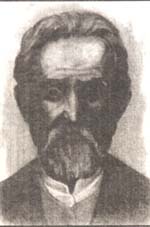


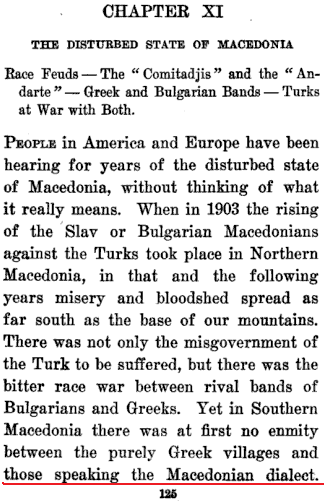
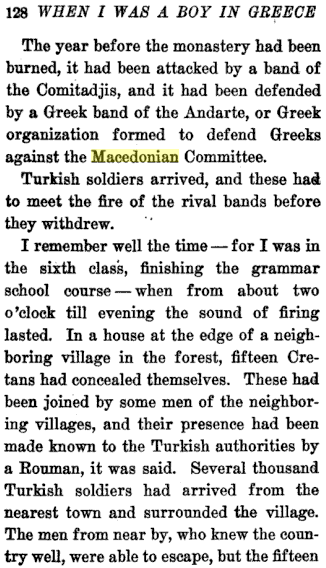
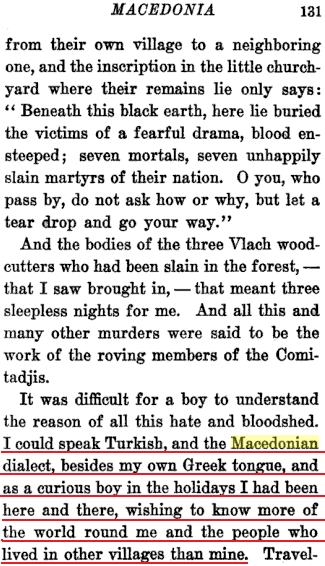
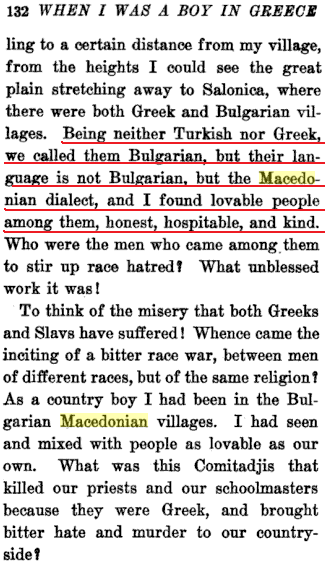
 )
)
Leave a comment: